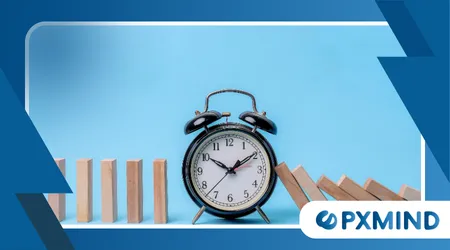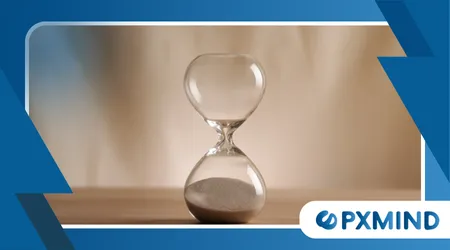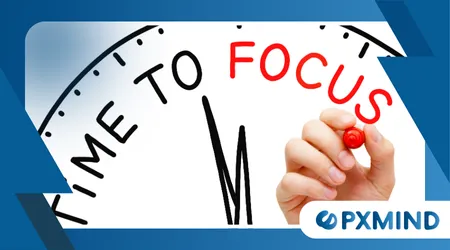Come usare i blocchi di concentrazione per massimizzare il tuo tempo

Utilizza i blocchi di concentrazione per massimizzare il tuo tempo, trasformando la tua routine quotidiana da caotica a altamente efficace. Nel nostro mondo sempre connesso, l'attenzione è la nuova valuta.
Annunci
Il flusso costante di notifiche digitali frammenta la nostra energia mentale. Per ottenere risultati concreti è necessaria una strategia di concentrazione mirata.
Senza una struttura, gli impegni della giornata consumeranno solo le tue preziose ore. È tempo di riprendere il controllo della tua agenda e delle tue risorse cognitive.
Cosa sono i blocchi di concentrazione e perché sono essenziali per i professionisti moderni?
I blocchi di concentrazione sono periodi dedicati e ininterrotti, programmati specificamente per attività ad alta priorità. Considerali come appuntamenti non negoziabili con il tuo lavoro più importante.
Questa tecnica di gestione del tempo, una forma di time-blocking, contrasta la costosa abitudine di cambiare contesto.
Il tuo calendario è suddiviso in segmenti definiti, a ciascuno dei quali è assegnato un obiettivo chiaro e specifico. Si tratta di un cambiamento mirato, che si allontana dalla necessità di reagire a ogni singolo ping.
Concentrarsi su un singolo compito aumenta significativamente le prestazioni mentali. Passare da un compito all'altro comporta una notevole "penalità da cambio".
Quando fai la transizione, il tuo cervello conserva un residuo di attenzione dall'attività precedente.
Questo effetto persistente ostacola gravemente le prestazioni nel nuovo compito. I blocchi di concentrazione eliminano questo ostacolo mentale, consentendo una vera immersione.
Come funzionano i Focus Block per aumentare produttività e qualità?
Il meccanismo si basa sulla riduzione dell'affaticamento decisionale e sulla promozione del lavoro profondo. Quando la tua agenda è pre-bloccata, non spendi alcuna energia mentale per decidere cosa fare dopo.
Il piano è già stabilito, liberando la tua forza di volontà per il lavoro vero e proprio. Questo approccio strutturato sfrutta la capacità del cervello umano di impegnarsi in modo costante e concentrato.
Ad esempio, un direttore marketing deve consegnare un importante report strategico. Invece di controllare la posta in arrivo ogni dieci minuti, ne pianifica uno di 90 minuti. Blocco di messa a fuoco.
Per saperne di più: Come dare priorità alle attività quando tutto sembra urgente
Durante questo periodo, l'applicazione di posta elettronica viene chiusa, il telefono viene silenziato e la porta viene chiusa.
Questo isolamento deliberato consente il profondo coinvolgimento cognitivo necessario per un'analisi e una scrittura di alta qualità. Ciò produce risultati migliori in tempi più rapidi.
Perché oggi la maggior parte delle persone ha difficoltà a mantenere la concentrazione?
La sfida principale è la cultura diffusa della disponibilità costante e della risposta immediata.
Notifiche, messaggistica istantanea e layout open space rendono la concentrazione profonda un atto controculturale. Molti professionisti equiparano frenesia con produttività, passando costantemente da compiti superficiali a compiti superficiali.
Ciò si traduce in una significativa perdita di valore.
Una statistica sorprendente del Gallup Rapporto sullo stato del posto di lavoro globale 2024 rivela un problema fondamentale. Il coinvolgimento globale dei dipendenti è sceso a 21% nel 2024.
Guarda quanto è interessante: Produttività senza burnout: trovare l'equilibrio
Un basso coinvolgimento contribuisce a una perdita di produttività stimata in 1438 miliardi di tonnellate a livello globale. Quando le persone non sono coinvolte, il loro tempo viene sprecato, spesso in distrazioni.
Questo approccio frammentato è davvero utile alla nostra crescita professionale o al nostro benessere?

Qual è il vantaggio strategico della pianificazione del lavoro approfondito?
Il vantaggio strategico risiede nel principio di Lavoro di alta qualità prodotto = (tempo impiegato) x (intensità di concentrazione).
Cal Newport, autore di Lavoro profondo, sostiene questa formula. Pianificare un blocco intenso e privo di distrazioni aumenta drasticamente la variabile "Intensità di Concentrazione".
Ciò rende il risultato esponenzialmente più prezioso e difficile da replicare.
L'approccio ritmico al time blocking, in cui si programmano periodi di routine per un lavoro approfondito, crea un'abitudine potente.
++ Capire i neuroni specchio e la connessione sociale
Uno sviluppatore di software, ad esempio, potrebbe dedicare le prime due ore della giornata, il momento di massima attività cognitiva, a complesse attività di codifica.
Ciò garantisce che il loro output più prezioso venga generato prima che inizino le richieste di lavoro superficiali del pomeriggio. Questa consapevole definizione delle priorità massimizza il loro contributo unico.
Come posso iniziare a usare i Focus Block per ottimizzare il mio tempo in modo efficace?
La transizione richiede intenzionalità e impegno nel rispettare il tempo programmato. Inizia verificando i tuoi livelli di energia giornalieri per identificare i momenti in cui raggiungi le massime prestazioni.
Pianifica i tuoi compiti cognitivamente più impegnativi durante queste finestre di tempo ad alta energia. Tratta questi blocchi come un incontro con il tuo cliente più importante: non annulleresti mai un appuntamento né arriveresti in ritardo.
Successivamente, implementa una "quarantena digitale" durante il blocco. Disattiva tutti gli strumenti di comunicazione non essenziali.
Consideriamo l'analogia di un arciere che tende l'arco: per colpire un bersaglio distante, l'arciere deve bloccare ogni movimento periferico, concentrare tutta la sua attenzione ed eseguire il tiro con incrollabile determinazione.
Il tuo Focus Block è l'attrazione deliberata e focalizzata.
Quali sono i passaggi pratici per implementare i Focus Block?
Dovresti iniziare con calma, magari con un singolo blocco di 60 minuti al giorno. Aumenta gradualmente la durata man mano che la tua capacità di concentrazione continua aumenta.
Se 90 minuti ti sembrano troppo intimidatori, usa un timer semplice, come la tecnica del pomodoro (25 minuti di lavoro seguiti da una pausa di 5 minuti).
Ricordati di programmare piccoli blocchi buffer tra le attività per consentire transizioni e problemi imprevisti.
Una buona pratica è quella di suddividere le email e le attività amministrative in fasce orarie. Invece di controllarle costantemente, dedicate un blocco specifico di 30 minuti alle 11:00 e un altro alle 16:00 a tutte le comunicazioni.
Ecco come si fa Utilizza i blocchi di concentrazione per massimizzare il tuo tempo contro la tirannia della posta in arrivo.
Questo contenimento strutturato impedisce che compiti superficiali si riversino nelle ore di lavoro più intense.
La tabella seguente illustra l'efficacia del dedicare tempo a uno sforzo mirato rispetto a uno sforzo frammentato su un compito complesso come la stesura di un report:
| Approccio | Tempo di attività (minuti) | Qualità di messa a fuoco stimata | Interruzioni | Qualità di output stimata |
| Lavoro frammentato | 120 | Basso (40%) | Discreto (necessita di revisione) | |
| Blocco di messa a fuoco | 90 | Alto (95%) | 0 | Eccellente (pronto per l'invio) |
Dovresti rivedere le tue prestazioni alla fine di ogni giornata, annotando cosa ha funzionato e cosa ti ha distratto. Questo ciclo di miglioramento continuo affina il tuo sistema.

In che modo i blocchi di concentrazione portano a una maggiore realizzazione professionale?
In definitiva, l'impegno mirato è intrinsecamente legato alla soddisfazione e alla crescita professionale. Un lavoro approfondito porta a risultati tangibili e di alto valore.
Il senso di realizzazione dopo aver completato un compito impegnativo in un Blocco di messa a fuoco è profondamente motivante. Stai sviluppando competenze rare e preziose che guidano davvero la tua progressione di carriera.
In un'economia che attribuisce sempre più importanza alla risoluzione creativa dei problemi e alla competenza, la capacità di concentrarsi profondamente è l'elemento differenziante.
Utilizza i blocchi di concentrazione per massimizzare il tuo tempo non solo per portare a termine i compiti, ma per produrre un lavoro di livello superiore.
Questo approccio intenzionale e disciplinato accresce la tua statura professionale e ti fornisce un autentico senso di padronanza.
Impegnati a trascorrere del tempo senza interruzioni e raccogli i frutti Utilizza i blocchi di concentrazione per massimizzare il tuo tempo
Padroneggiare l'uso dei blocchi di concentrazione è probabilmente la competenza più potente per la produttività nel 2025 e oltre. Si tratta di un passaggio semplice ma rivoluzionario da una programmazione reattiva a una proattiva.
Pianificando e proteggendo diligentemente periodi di profonda concentrazione, trascendi la mera gestione dei compiti. Sblocchi il tuo pieno potenziale cognitivo.
Adotta oggi questa potente tecnica. Decidi di Utilizza i blocchi di concentrazione per massimizzare il tuo tempo, trasformando le ore fugaci in traguardi duraturi.
Questa disciplina strutturata è la via più sicura per raggiungere l'eccellenza professionale e una giornata lavorativa più calma e controllata.
Domande frequenti
Quanto dovrebbe durare un Focus Block ideale?
La durata ideale varia a seconda della persona e del compito, ma la ricerca suggerisce che 90-120 minuti sono efficaci per un lavoro approfondito. Inizia con 60 minuti se sei un principiante.
Cosa succede se mi distraggo durante il Focus Block?
Riconosci la distrazione, prendine nota se necessario e torna immediatamente al compito da svolgere. La chiave è resistere alla distrazione finché il blocco non si risolve.
È corretto programmare una pausa?
Sì, brevi pause (5-15 minuti) sono essenziali per mantenere l'attenzione costante e prevenire il burnout. Programmale tra i tuoi blocchi di concentrazione per riposare davvero la mente.
Dovrei usare Focus Blocks per ogni attività?
No. Riservate i Focus Blocks per compiti cognitivamente impegnativi e di alto valore. Utilizzate metodi diversi e più brevi (come il time-boxing) per attività superficiali e di basso valore, come la gestione delle email e la pianificazione.
++ La guida completa al tempo di concentrazione
++ Gli 8 migliori consigli per aumentare la produttività e ottimizzare il tempo a disposizione
